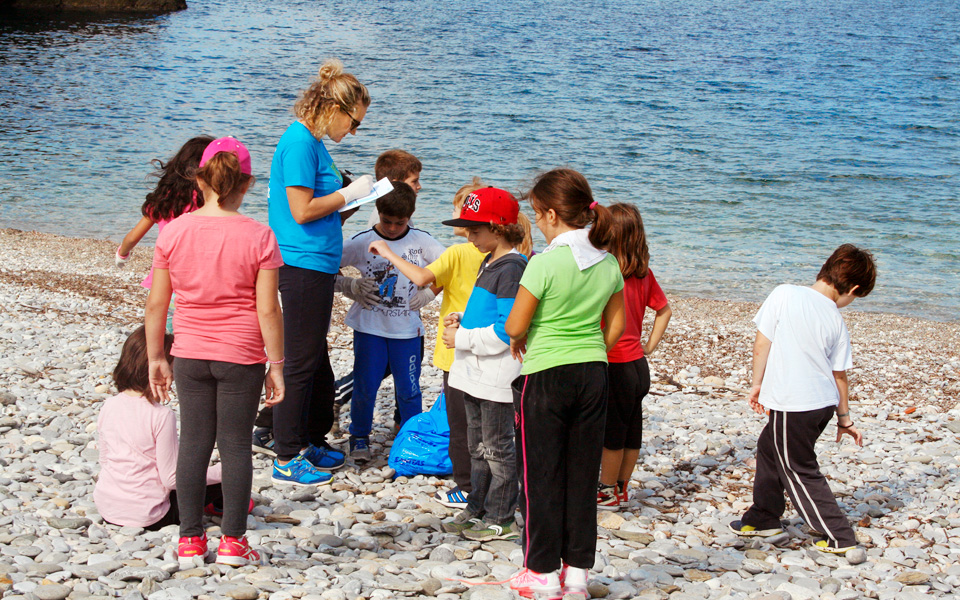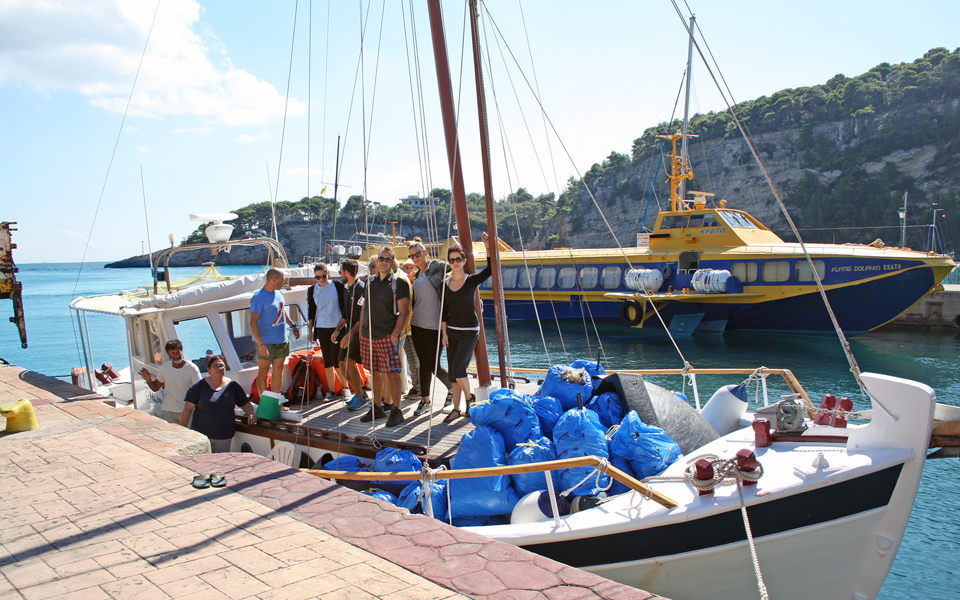As of December 1, 2015, Alonissos island in the Sporades took a first, tiny (yet notable) step in becoming an eco-friendly destination by launching a campaign to abolish the use of plastic bags.
At the center of the National Marine Park of Alonnisos Northern Sporades, the island’s environmental conscience is nothing new to its inhabitants, says its mayor, Petros Vafinis. A major tourist attraction and environmental gem, the national park is Europe’s largest marine protected area (approximately 2.260 sq.km), where the precious Mediterranean monk seal (Monachus Monachus), as well as hundreds of other animal and plant species, are protected. Meanwhile, the mayor says that since 2012, most of the island’s community (95 percent) has actively participated in various recycling programs such as clearing the island of discarded metals and tires from cars and machinery, old electrical equipment, used cooking oil from restaurants as well as plastic, glass, paper and aluminum disposables, most of which are shipped to recycling plants in Larissa.
Vafinis resolved to abolish plastic bags after attending a conference on recycling and the effects of plastic pollution. Realizing the enormous damage that plastic does to the marine environment and beyond encouraged him to join forces with the Thalassa Project (which enjoys EU financial support) and two nongovernmental organizations, the Mediterranean SOS Network and the Hellenic Society for the Study and Protection of the Monk Seal. Together, they launched the goal of eradicating the use of plastic bags on Alonissos by the end of 2016.

When asked about potential stumbling blocks for the fresh initiative, Vafinis says: “The only concern I have is that local shop owners may come under pressure from customers who insist on being handed plastic bags, although most proprietors have promised not to succumb to such demands.” Natalia Roumelioti, the director of Mediterranean SOS, agrees that for adults especially, old habits can die hard. Therefore, she feels that “efforts for their engagement in such initiatives and awareness-raising need to be further intensified.”
Significant progress was achieved on the island in the first week of the initiative, with 80 percent of stores using paper bags and businesses halting their orders of new deliveries of plastic. The two NGOs are setting up a campaign aimed at tourists in the summer 2016 season and will be handing out 2,000 cloth bags (made of 100 percent cotton) to households around the island. They are also planning to distribute educational fliers to locals and visitors. Awareness-raising seminars and workshops are also scheduled for schools.











